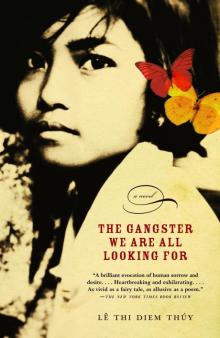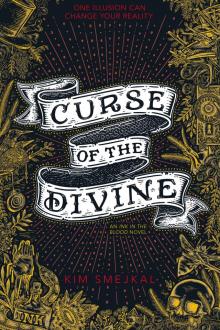The Gangster We Are All Looking For


Author: Le Thi Diem Thuy
Category: Other2
Published: 2011
Series:
View: 166
Read OnlineThis acclaimed novel reveals the life of a Vietnamese family in America through the knowing eyes of a child finding her place and voice in a new country.
In 1978 six refugees—a girl, her father, and four “uncles”—are pulled from the sea to begin a new life in San Diego. In the child’s imagination, the world is transmuted into an unearthly realm: she sees everything intensely, hears the distress calls of inanimate objects, and waits for her mother to join her. But life loses none of its strangeness when the family is reunited. As the girl grows, her matter-of-fact innocence eddies increasingly around opaque and ghostly traumas: the cataclysm that engulfed her homeland, the memory of a brother who drowned and, most inescapable, her father’s hopeless rage. **
From Publishers Weekly
Le's first novel is a bracing, unvarnished, elliptical account of a Vietnamese refugee family, in America but not yet of it, hobbled by an unfamiliar environment and their own troubled relationships. It's narrated by the family's young daughter, newly arrived in San Diego with her father after being sponsored by a well-meaning but condescending American family. Her mother soon joins them, and the family endures an itinerant existence of low-wage jobs and cheap rental apartments. Other Vietnamese wander namelessly through the book, sharing space with the family but providing little of the warmth of community. Nearly plotless, the novel is organized into vignettes that each feature one piercing image: a drunken parent, a shattered display cabinet, a drowned boy. As the narrator makes her halting adjustment to America, she also tries to discover what the family has left behind in Vietnam. Her father's mysterious past caused him to be rejected by his in-laws; these grandparents are now known to the girl only through a worn photograph. Then there is her brother, whose fate is mentioned only in whispers. Le allows no sentimentality to creep into this work-indeed, she hints only subtly at the narrator's emotional state ("there is no trace of blood anywhere except here, in my throat, where I am telling you all of this"), as though any explicit show of feeling were too frivolous for the subject at hand. This is a stark and significant work that will challenge readers.Copyright 2003 Reed Business Information, Inc.
From Booklist
The narrator of le's poetically spare but psychologically rich debut novel is only six when she and her father and four other Vietnamese men arrive in San Diego, thanks to a generous man who learned of the plight of Vietnamese boat people at church. Sadly, he dies before they arrive, leaving his widow and reluctant son to care for the refugees, an arrangement that ends with the sort of disaster only a lonely and imaginative child can create. Her mother was left behind in the confusion of their dangerous escape, and she also misses her dead older brother. Her mother finally joins them, but their lives remain unsettled, perplexing, even demoralizing in the face of undisguised prejudice and resentment. As le's narrator grows into adolescence, her perspective expands accordingly, illuminating not only her parents' passionate but violently troubled marriage, a much-objected-to union between a "Catholic schoolgirl from the South" and a "Buddhist gangster from the North," but also the many horrific and indelible psychic consequences of war. There is much pain in this exquisite novel, and much beauty. Donna SeamanCopyright © American Library Association. All rights reserved
In 1978 six refugees—a girl, her father, and four “uncles”—are pulled from the sea to begin a new life in San Diego. In the child’s imagination, the world is transmuted into an unearthly realm: she sees everything intensely, hears the distress calls of inanimate objects, and waits for her mother to join her. But life loses none of its strangeness when the family is reunited. As the girl grows, her matter-of-fact innocence eddies increasingly around opaque and ghostly traumas: the cataclysm that engulfed her homeland, the memory of a brother who drowned and, most inescapable, her father’s hopeless rage. **
From Publishers Weekly
Le's first novel is a bracing, unvarnished, elliptical account of a Vietnamese refugee family, in America but not yet of it, hobbled by an unfamiliar environment and their own troubled relationships. It's narrated by the family's young daughter, newly arrived in San Diego with her father after being sponsored by a well-meaning but condescending American family. Her mother soon joins them, and the family endures an itinerant existence of low-wage jobs and cheap rental apartments. Other Vietnamese wander namelessly through the book, sharing space with the family but providing little of the warmth of community. Nearly plotless, the novel is organized into vignettes that each feature one piercing image: a drunken parent, a shattered display cabinet, a drowned boy. As the narrator makes her halting adjustment to America, she also tries to discover what the family has left behind in Vietnam. Her father's mysterious past caused him to be rejected by his in-laws; these grandparents are now known to the girl only through a worn photograph. Then there is her brother, whose fate is mentioned only in whispers. Le allows no sentimentality to creep into this work-indeed, she hints only subtly at the narrator's emotional state ("there is no trace of blood anywhere except here, in my throat, where I am telling you all of this"), as though any explicit show of feeling were too frivolous for the subject at hand. This is a stark and significant work that will challenge readers.Copyright 2003 Reed Business Information, Inc.
From Booklist
The narrator of le's poetically spare but psychologically rich debut novel is only six when she and her father and four other Vietnamese men arrive in San Diego, thanks to a generous man who learned of the plight of Vietnamese boat people at church. Sadly, he dies before they arrive, leaving his widow and reluctant son to care for the refugees, an arrangement that ends with the sort of disaster only a lonely and imaginative child can create. Her mother was left behind in the confusion of their dangerous escape, and she also misses her dead older brother. Her mother finally joins them, but their lives remain unsettled, perplexing, even demoralizing in the face of undisguised prejudice and resentment. As le's narrator grows into adolescence, her perspective expands accordingly, illuminating not only her parents' passionate but violently troubled marriage, a much-objected-to union between a "Catholic schoolgirl from the South" and a "Buddhist gangster from the North," but also the many horrific and indelible psychic consequences of war. There is much pain in this exquisite novel, and much beauty. Donna SeamanCopyright © American Library Association. All rights reserved
 Curse of the Divine
Curse of the Divine Wild Lands (Savage Lands Book 2)
Wild Lands (Savage Lands Book 2) English Lessons
English Lessons House of Silence (Poisoned Houses Book 3)
House of Silence (Poisoned Houses Book 3) Futura: Parallel Universes. Book 1
Futura: Parallel Universes. Book 1 The Armageddon Series | Book 2 | Pandemic, Part 2
The Armageddon Series | Book 2 | Pandemic, Part 2 The Spoils of Avalon
The Spoils of Avalon The Lord of Shadows
The Lord of Shadows